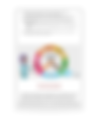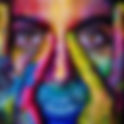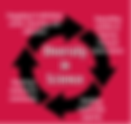Learning Experience Design (LXD) Portfolio Snapshot
Search Results
19 results found with an empty search
- Stanford Physician Leadership Certificate Program (CE Accreditation)
"C-suite education for the Non-C-suite physician" Program Highlights: 5 month cohort-based learning experience Cases and Simulations covering organizational politics, negotiation & influence, conflict management, team performance and decision making Psychometric Tools Instructional Design: Overhauled Storyline and Canvas materials 2022 & 2023
- Stanford Advanced Practice Provider Leadership Certificate Program (CE Accreditation)
Learning Experience Features: 4 month cohort-based learning experience Psychometric tools Leadership & Influence Essentials Learner Profile: Early to mid-career US practicing non-physician providers Instructional Design - Storyline & Canvas
- MedEd Mastery Series: Mastering the Teach-Back Method for Patient-Centered Care (CE Accreditation)
An accredited mix-media micro-module learning experience covering the Teach-Back Method, a powerful communication technique developed by the AHRQ to support the Healthy People 2030 goal of improved communication between patients and health professionals. This learning experiences focuses on learner discovery and application with provider-patient and faculty-student interactions. Product Research. Content creation - script to final product. LMS design and creation. Learner profile: working professionals within healthcare
- Product: Upstander Training - Addressing Bias in the Workplace (CE Accreditation)
2022-2023 Cross-collaborated with Stanford CME and Faculty to overhaul and design a learning experience series that covers discrimination in the clinical setting, and intervention methods to curb microaggressions and other acts of discrimination. Upstander 1.0 Upstander 2.0 Led learning design conformance with the Web Content Accessibility Guidelines 2.0: Level A and AA standards.
- Product: USADA HealthPro Advantage Course
2022-2023 Collaborated with the United States Anti-Doping Agency and in-house Stanford Continuing Medical Design team to design the HealthPro Advantage course. Ongoing testing and consultations were put together to build a user-friendly upskilling course that aligned closely to World Anti-Doping agency rules and policies.
- Case Studies: Multiple Sclerosis - An Educational Intervention to Promote Improved Outcomes
2022-2023 Utilized an existing suite of learning experiences to create a case studies module to support performance of understanding within medical professional upskilling practice. Case Studies on the Importance of Early Diagnosis and Optimal Treatment Have you encountered a patient with Multiple Sclerosis? This disease affects 2.8 million people worldwide, with a disproportionate number in the United States. In this interactive module about Multiple Sclerosis, explore four case studies that illustrate the importance of early diagnosis and optimal treatment of patients. Providers can learn how to diagnose efficiently and best provide early interventional treatment to Multiple Sclerosis patients.
- Product: Stanford Medicine Prostate Cancer CME Series
2022 "Treatment Across the Prostate Cancer Continuum will provide a comprehensive overview and understanding of increasingly complex treatment options and close knowledge gaps in earlier stages of prostate cancer, provided by world-renowned experts in a concise and exciting format." This suite of trainings can be found at: https://med.stanford.edu/cme/learning-opportunities/prostatecancer.html#modules Finalized the interactive e-learning modules and led learning design conformance with the Web Content Accessibility Guidelines 2.0: Level A and AA standards.
- Program: Science to Street Art
2018 - 2021 Founded, established, and implemented the first science-art fusion public art program at the University of Wisconsin Madison. Annually, the program matches teams of scientists, artists, and community to co-create science themed works (1-5/year). Works are rooted in community interests, cultural practice, and encourage under-considered students to pursue STEM fields by providing stunning visual learning works and experiences. Mission: Science to Street Art aims to visually inspire Science, Technology, Engineering, Art, and Math (STEAM) education and careers through the innovative planning, design, and management of public spaces known as Creative Placemaking. Scope: State of Wisconsin, Multigenerational Learners, K-12 Curriculum, Out of School Organizations Skills: Design conducted, compiled, and analyzed: industry competitive scans and municipal research; learner-centered usability tests with multigenerational community members; and interviews with relevant stakeholders to produce design insights designed program structure and practice based on research, user data, and mission-centered learning goals conducted A/B testing on design prototypes with stakeholders and target audience navigated university, municipality, and community policies to ensure successful and safe implementation of each project designed and implemented branding efforts (logo, website, and communications) conducted and drafted annual plans and 3-year strategic plans collaborated with digital content, augmented reality, and virtual reality creators to pilot a geo-location digital learning platform (integrated with 360 capture as a minimum viable digital product) designed assessment and evaluations, implemented assessment plan, and produced related reports Leadership and Management developed end-to-end implementation and management strategy created benchmarking model to socialize budgetary needs and timelines to key stakeholders, donors, and grantors created benchmarks to incorporate emerging technologies into years 3-4 of program strategy - model utilized within 2020 and 2021 grant cycles oversaw and facilitated cross-functional team collaboration for each design process drafted and negotiated contracts and secured project locations led grant writing and fundraising efforts acted as primary contact for all aspects of programming and media engagement led budget decisions and management Outcomes: continues to reach 2,600+ people annually, prioritizing underserved communities and public art deserts contributed to expanding local opportunities for street art and hip-hop art forms inspired 5 local and national programs, and 2 conferences, to incorporate street art into science communication and outreach Content Samples: Website: https://sciencetostreetart.illuminatingdiscovery.wisc.edu/
- Program: Kohler Fellows
2019 - 2021 Revamped UW-Madison's Kohler Fellow program. Due to the updated pedagogy, design and curriculum changes the Kohler Fellows program is now a competitive program that matches graduate students in the arts and sciences to create science-art fusion outreach initiatives. Scope: Higher Education, Adult Learning Mission: Support multidisciplinary peer teaching, learning and collaboration at the University of Wisconsin Madison while building science-art fusion skills within early career scientists and artists that produce in real-time works for the public good. Skills: Design collaborated with faculty, administrative staff, and fellows to design learning experiences the leverage constructivist and project-based learning methods created syllabus and related curriculum material for the fellowship - materials now the model for each cohort experience design led all the graphic design and marketing content creation processes and communication strategies produced website content and design from the ground up utilized LMS platforms for instructional design purposes Leadership & Management piloted the new program design from end-to-end taught weekly: areas included art administration, skills for science-art fusion collaboration, and the intersections of ethics within science and art industries mentored fellows and supported the realization of fellows' projects co-led all aspects of program administration Outcomes: produced novel science-art fusion partnerships and multi-disciplinary peer-learning communities generated multiple science-art fusion projects each year serving municipal and state-wide communities expanded graduate student professional skill sets within the arts and sciences reinvigorated the fellowship - transforming the program into a competitive and well-recognized graduate experience Website: https://kohlerfellows.illuminatingdiscovery.wisc.edu/
- Project: A-JEDI Initiative & Working Group
2020-2021 Established the Antiracist - Just, Equitable, Diverse, and Inclusive initiative and working group at UW-Madison's Wisconsin Institute for Discovery. Based on proven methods from organizational change standards, A-JEDI work combines both leadership and grass roots initiatives to effect culture in community and at-large. As highlighted within the image below, the A-JEDI approach encourages individuals to take responsibility for their own learning and actions, and equip each other and research groups to take on issues together through peer teaching and resource building. Through common experience sharing and events, the A-JEDI working group establishes community around the topics of inclusion. Events included movie screenings, book clubs, public events, and internal exploration and training workshops related to recent research on antiracism and belonging within STEM education and careers. Mission: The A-JEDI initiative aims to engage members of the community all levels, faculty, staff, and students have self-organized to learn and explore A-JEDI principles. Scope: Higher Education, Adult Learning, Upskilling Skills: Design collaborated and designed workshop's instructional materials and formats created event series frameworks designed content and communications with and for leadership, researchers, staff, and student body collaborated on building a survey to assess current A-JEDI practices and needs within work community Leadership & Management networked and built coalitions of staff, researchers, and students to create community and tackle A-JEDI topics and concerns within the work environment and industry led group and meeting facilitation and documentation managed event and meeting technical needs at all stages of the initiative Outcomes: built A-JEDI leadership capacity at all levels (staff, researchers, students) formed a library of A-JEDI resources for in-reach and outreach purposes walked the talk - effected STEM A-JEDI change by modeling and producing sharable events, resources and insights gained from the A-JEDI work Communication Samples: Website: https://wid.wisc.edu/ajedi/
- Events: Education Career Building
2021 As a part of the Harvard Graduate School of Education Educational Leadership, Organizations and Entrepreneurship program's Student Advisory Board - I co-created workshops focused on teaching professional development skills and upskilling strategies. These workshops were for current graduate students within education seeking positions post-graduation. Scope: Higher Education, Adult Learning Skills: Design conducted student evaluations to establish workshop priorities co-built workshop instructional design and produced resume and LinkedIn samples produced all marketing digital content and related graphics Leadership & Management taught workshops in collaboration with career subcommittee partner facilitated workshop discussions planned events in collaboration with Harvard Graduate School of Education staff Outcomes: advanced career skill-building within the Educational Leadership, Organizations and Entrepreneurship cohort community scaffolded self-directed learning within adult learning demographics produced peer-teaching moments that supported attendee's building career support groups that continued after the events
- Project: ReelTalk
2022 Co-created and proposed a social media movement: ReelTalk. Learning through play is an effective medium through which young people develop key life skills, as well as expand their knowledge and expertise. Play during leisure time carries on into pre-adolescence, but rather than playing with toys, young adolescents play with technology. Tweens (10-14 year olds) today are surrounded by pop culture and mass media through networks of technology, and research shows that tweens hunger for media portrayals that are authentic representations of themselves. The ReelTalk social media movement builds media literacy in service of belonging, mental health and well-being of tweens, leveraging pop culture and mass media as channels for informal learning. The project design meets students where they are at — social media. ReelTalk engages students in belonging and mental health topics through what they are talking about — pop culture and mass media. Scope: Online Platforms, Digital Media Literacy, Tweens, Interactive Design Mission: ReelTalk aims to build authentic and informed connections to mass media and mental health management for tweens to engage as critical thought leaders for healthy media consumption. Skills: Design sketched learner/target audience profiles conducted formative evaluations on 8 tweens and 5 parents conducted A/B testing of content produced content using an agile and iterative prototype method produced logic model and related graphics Leadership & Management led group collaborations and facilitation of group meetings established and managed business model, business strategy, and prototype timelines and deliverable benchmarks produced impact evaluation plan Intended Outcome: enhance digital and pop-culture media literacy within tween audiences using social media establish belonging and mental health knowledge and strategies amongst tweens support greater mental health awareness among tweens Prototype Samples:











